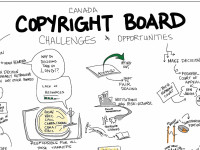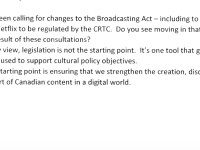The Federal Court of Canada issued its much anticipated copyright decision yesterday in the lawsuit launched by Blacklock’s Reporter, an Ottawa-based online paywalled news site, against many government departments. I discussed the case in a Canadaland podcast earlier this year, highlighting some of Blacklock’s business strategies that include using the access to information system to trace the use of its articles by government subscribers and recipients of articles from third parties. Blacklock’s sued the Department of Finance for $17,209.10 over two articles that were sent to government officials from a paying subscriber concerned with comments found in the article. The articles were subsequently forwarded to several media relations personnel within the department.
The court acknowledged that there are concerns with some of Blacklock’s business practices (the government argued that it engages in copyright trolling), but concluded that it could address the case with only a fair dealing analysis. Affirming well established Supreme Court jurisprudence on fair dealing, the court emphasized that fair dealing is a user’s right that must not be interpreted restrictively. In this case, the court had little trouble finding that the department’s use of the articles qualified as fair dealing given that it was done for a proper research purpose, involved a limited distribution, the originals were obtained legally by a paying subscriber, and officials had a legitimate interest in reading the articles in order to hold Blacklock’s to account for questionable reporting.











